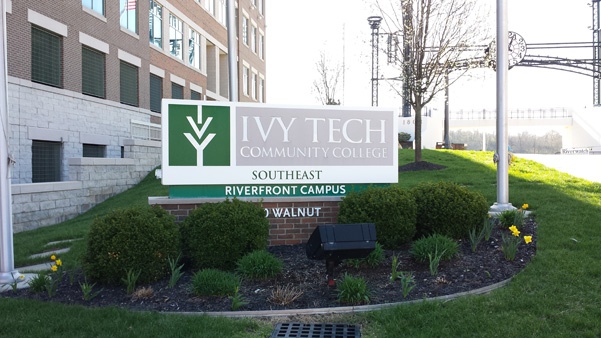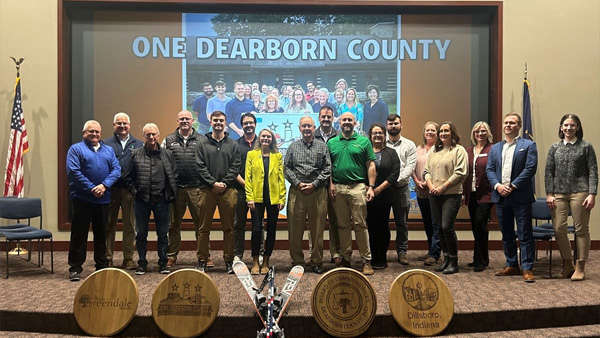The finals will take place during a Virtual Boot Camp in June.

(Lawrenceburg, Ind.) – A team from Ivy Tech Community College in Lawrenceburg is advancing to the finals of a competition built around developing STEM-based solutions to real-world problems.
The American Association of Community College (AACC), in partnership with the National Science Foundation (NSF), announced Friday the 12 teams to advance to the final round of the Community College Innovation Challenge (CCIC).
The team from Ivy Tech Community College in Lawrenceburg will participate in a Virtual Boot Camp in June.
Participants will interact with entrepreneurs and experts in business planning, stakeholder engagement, strategic communication, and marketplace dynamics.
The Boot Camp culminates in a Student Innovation Showcase with STEM leaders and Congressional stakeholders, and a pitch presentation to determine the first, second, and third-place winning teams.
Ivy Tech’s team will be presenting their Viruscan project, which seeks to combat the spread of a pandemic virus through a new inexpensive, self-administered test that automatically alerts primary care providers.
"It is truly inspiring to see the creativity and amazing talent of students in the nation’s community colleges, and I would like to congratulate the finalists for their hard work," said Karen Marrongelle, assistant director for NSF’s Education and Human Resources Directorate. "We need to inspire new generations across all communities to explore the wonders of science and engineering, and CCIC is an exciting opportunity for students to start thinking about STEM careers. I look forward to learning more about their projects and the contributions these students will make to America's STEM future.”
Projects for the 11 other finalists is listed below.
-
Austin Community College (Texas)
-
The OASIS– the Officer Aptitude & Stress Information System uses artificial intelligence to help police departments better analyze data from devices such as camera footage, GPS systems, and heart-rate monitors.
-
-
Bergen Community College (New Jersey)
-
The Electric Vehicle Conversion Project seeks to reduce carbon emissions within the transportation industry by developing modular kits to convert gasoline-powered pickup trucks into fully electric vehicles.
-
-
Borough of Manhattan Community College (New York)
-
The BMCC student team is developing accessible and affordable Virtual Reality applications to serve as an interactive learning platform for children with autism to teach them essential life-skills.
-
-
Columbus State Community College (Ohio)
-
The Greenago: Turning Colleges Green project is placing SMART, self-compacting recycling bins on college campuses that reward students for recycling through the use of an app.
-
Henry Ford College (Michigan)
-
The MaskKito: A Sleek Nano-Cleanser Mask project is developing a COVID-19 prevention mask with the ability to destroy viruses using the combined technology of nano-fiber weaves with UVC radiation.
-
-
Itawamba Community College (Mississippi)
-
The Achelous project is developing a filtering mechanism to collect clean water that can be used in rural areas, in times of emergency, and to provide water to the homeless.
-
Johnson County Community College (Kansas)
-
The Johnson County team is creating a mechanical bench that allows individuals who use mobility aids such as wheelchairs to get from their driver’s seat to the back of their vehicle unassisted to access their device.
-
-
Nashua Community College (New Hampshire)
-
The EnviroMask project is developing an environmentally friendly, fully biodegradable face mask using cotton with bioplastic and non-woven bamboo fiber.
-
Pasadena City College (California)
-
The Pasadena City College team is exploring the use of antibody conjugated nanoparticles to assist in the identification and treatment of cancer and infectious diseases.
-
Tarrant County College (Texas)
-
The Shroomzzz: In-Hive Mushroom Cultivator project is focused on improving the health of bee colonies.
-
-
Virginia Western Community College (Virginia)
-
The Community Coral Project is supporting coral growth through 3D printing of porous structures made of PLA, a plastic substitute made from fermented plant starch.
For more information, visit www.aaccinnovationchallenge.com.

 Weight Limit Implemented for Emergency Vehicles on I-275 Carroll Cropper Bridge
Weight Limit Implemented for Emergency Vehicles on I-275 Carroll Cropper Bridge
 One Dearborn County Named Stellar Pathways Designated Community
One Dearborn County Named Stellar Pathways Designated Community
 DCF Proactive Grant Supports Sunman Rural Fire Department
DCF Proactive Grant Supports Sunman Rural Fire Department
 Rep. Bascom to Serve on Key House Committees
Rep. Bascom to Serve on Key House Committees
 ISP Announces 2025 Indiana Missing Children's Day Poster Contest
ISP Announces 2025 Indiana Missing Children's Day Poster Contest











